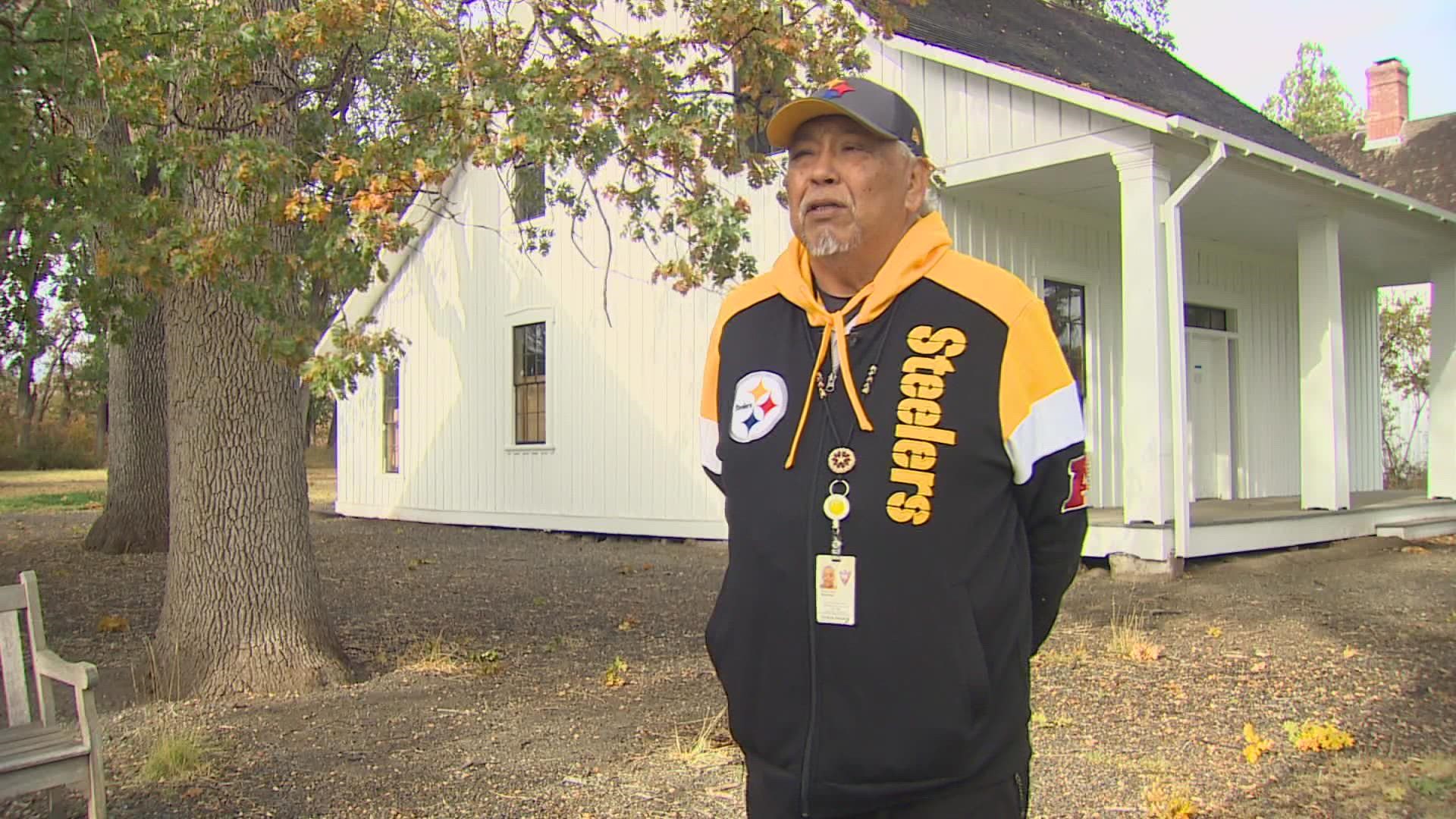WHITE SWAN, Wash. — Washington state’s website for Fort Simcoe State Park highlights the military history of the park 30 miles southeast of Yakima.
“Fort Simcoe is one of the few remaining pre-Civil War forts in the west. Military history buffs should put it on their bucket lists,” reads the state’s webpage for the park, which is on the National Register of Historic Places.
But for members of the Yakama Nation, the property represents something else.
”The dark time for our people. It happened here,” said Shymyah Washines, a Yakama Nation member.
According to a recent study commissioned by the U.S. Department of the Interior, between 1860 and 1922, Fort Simcoe was used as a boarding school Native American children were forced to attend.
“Considered to us a concentration camp,” said Washines, who had ancestors who attended the school.
The U.S. government operated more than 400 schools across the country for 150 years.
Washines estimates hundreds of children attended Fort Simcoe.
”The saying goes: ‘Kill the Indian. Save the Man.’ That’s basically what the code of the United States at that time was,” said Washines. ”The intent wasn’t to educate our people, the intent was to change our people. To take away what was sacred, not only our food and water but our language. Our traditional ceremonies, our songs, even our hair.”
According to government documents, children were given European or American names, like Abe Lincoln, Christopher Columbus, and Mary Ann.
The school building no longer stands on the park property. It burned down in 1955.
The existing structures include a fort lookout, officer and servants’ quarters, and a jail.
Levina Wilkins, 87, whose parents attended the school, retells stories about children being sent to jail when they tried to escape the campus or spoke their original language.
”Some of them couldn’t speak English. They weren’t taught to speak English. They were supposed to learn and learn fast in order to become ‘civilized,’” said Wilkins.
A spokesperson for the Washington State Parks and Recreation Commission said the state has "begun conversations" with the Yakama Nation to include more history of the park’s use as a boarding school campus.
“We want to make sure that our efforts reflect accurate history and hope to partner with members of the Yakama Nation to tell the story,” said spokesperson Amanda McCarthy. “There is still a lot of work to be done.”
Washines hopes the military history will not be the only part of the park that is featured.
”It’s going to be the true story about our people, about what this place represents, what it means to us,” said Washines, “So that when people come here to visit they’ll understand, they’ll learn who we are, and what we went through.”

